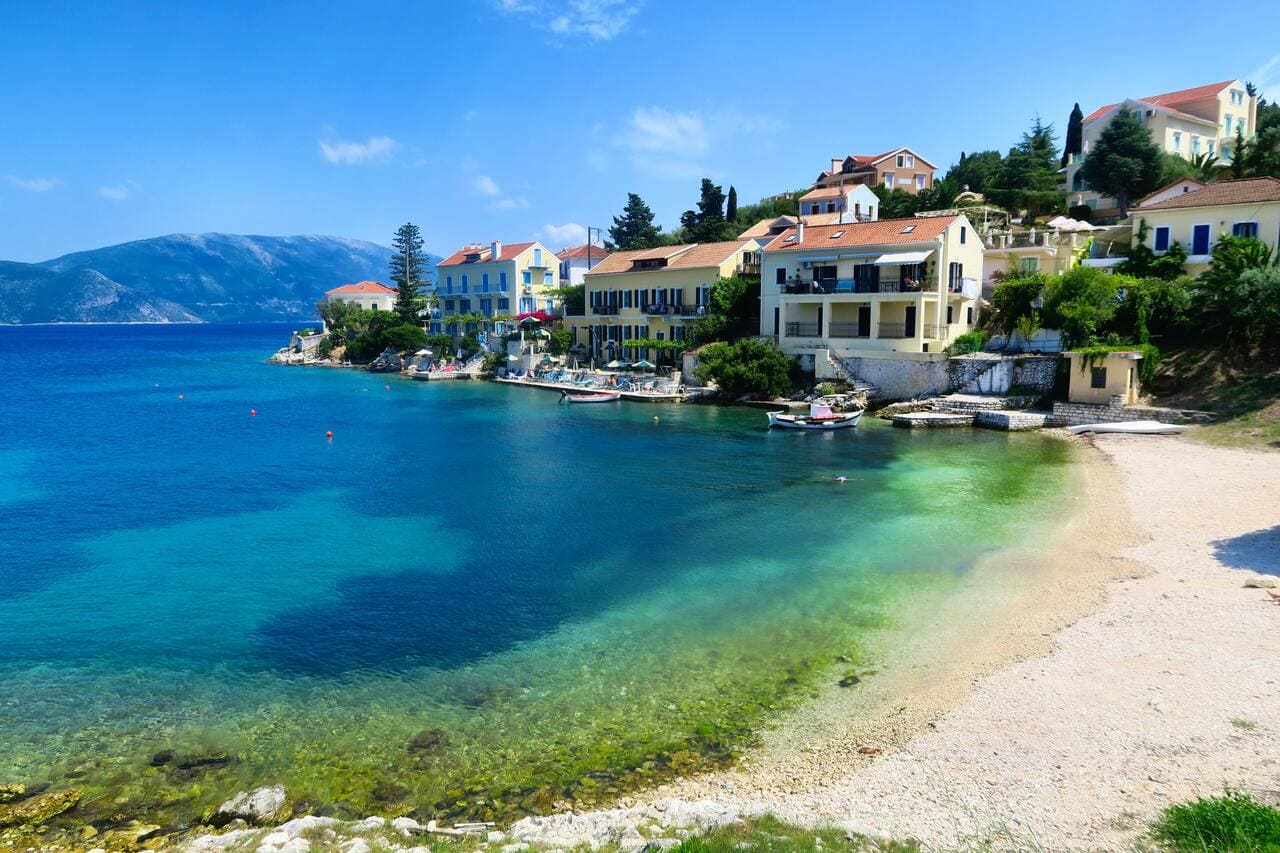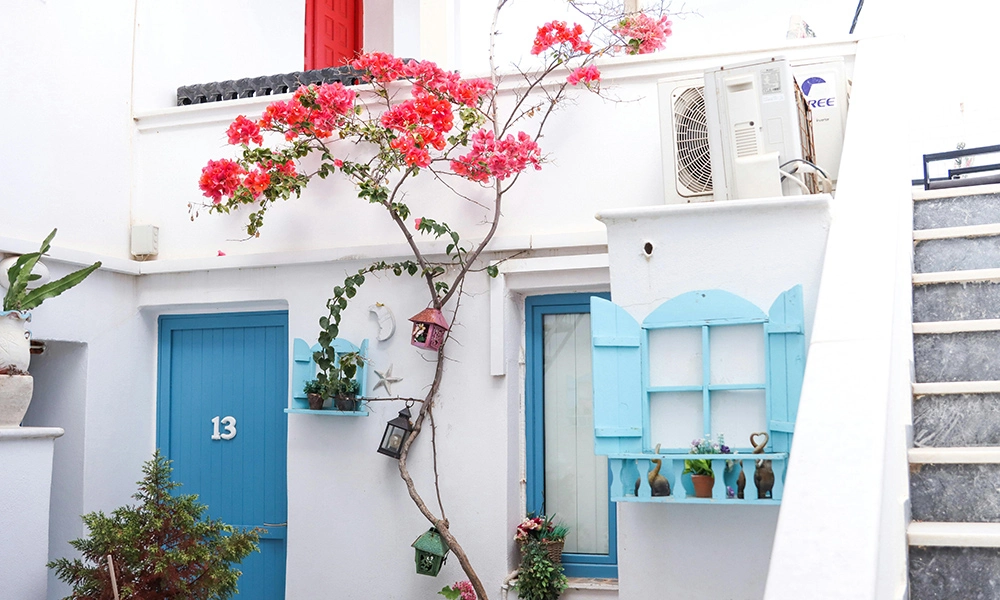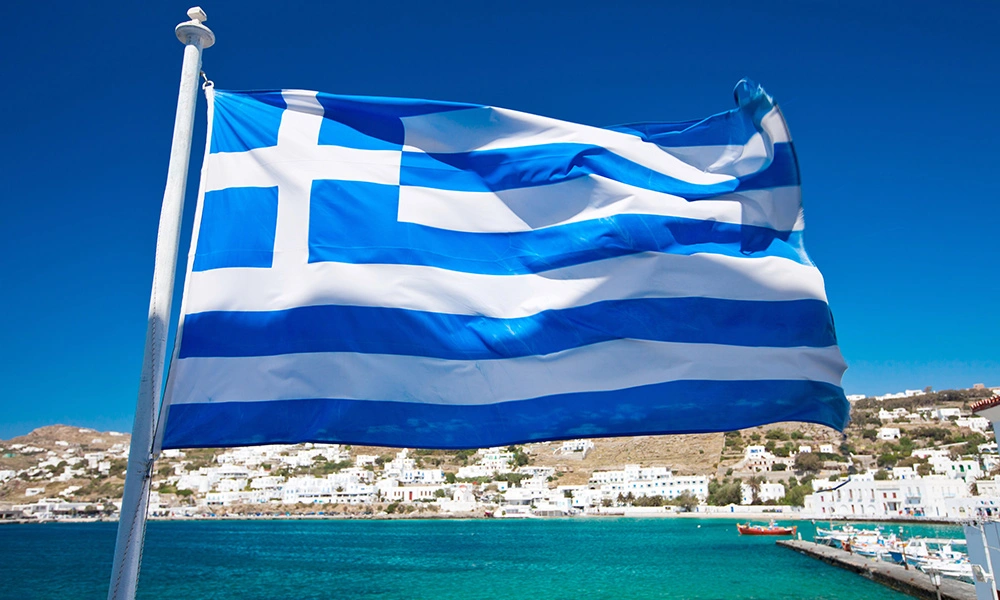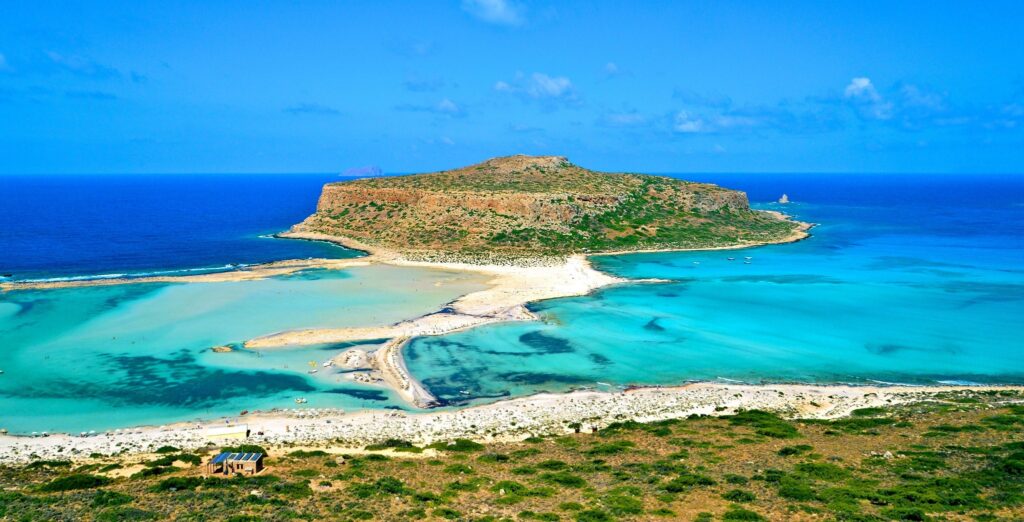Greece has become one of the most popular tourist destinations: in 2024, more than 35M people visited the country to enjoy the cleanest beaches, lie under the sun and admire local attractions. Many who have visited here at least once as a tourist dream of moving to Greece for permanent residence: in addition to unlimited opportunities for recreation, sunny Hellas is valued for its measured pace of life, European comfort and affordable prices.
When planning a move, it is worth considering many factors: from legalization options to the lifestyle and mentality of local residents. We tell you what you need to know about Greece, figure out what pros and cons await expats and answer current questions.
Quality of Life in Greece
According to the UN, in terms of human development, Greece ranks 33rd in the world, and in the Numbeo Quality of Life Index the country took 46th place. Greeks can be called long-livers: the average life expectancy in the country is 81 years, one of the highest rates in Europe. In addition to comfortable social conditions, this is largely due to excellent ecology, a mild climate and healthy Mediterranean food. In addition, life in Greece can be relatively inexpensive, especially when compared to other European countries. This is a big advantage for those who strive for a comfortable life without unnecessary expenses.
Although the effects of the 2008 economic crisis may still be visible, the Greek economy is actively being restored: In 2024, GDP increased by 4.2%, outpacing many European countries. Unemployment has fallen significantly, while wages and overall welfare continue to grow. Analysts predict that this trend will continue in the coming years.
Best Regions to Live in Greece
The quality of living in Greece depends on where exactly you decide to settle. Large cities offer more opportunities for work and entertainment, but also higher costs of living, including housing and food. If you are looking for a balance between opportunities and prices, it is worth considering options outside the capital.
Athens is the heart of Greece, where all business and cultural life is concentrated. Living here is more expensive than in other cities in Greece, but cheaper than in other European capitals.
If you want to live closer to the capital, but in a quieter place, pay attention to the suburbs of Athens.
Piraeus is a major port and transport hub, with lower prices than Athens and a 20-30 minute drive to the centre. More upmarket options include Vari, Voula, Vouliagmeni, Glyfada and other southern suburbs on the Athenian Riviera. Kifissia and Chalandri are fashionable suburbs north of the capital, traditionally chosen by the local and creative elite: it’s a bit cooler, greener and has a calmer, more laid-back atmosphere.
Thessaloniki is the second largest city in Greece, it has a developed infrastructure, good universities and medicine. Living in Thessaloniki is a little cheaper than in Athens, the ecology is better here, and the beaches of Halkidiki can be quickly reached by car.
In other parts of Greece, life is slower and prices are lower. For example, in the Peloponnese, Chalkidiki and the Greek islands, the main income comes from tourism. This means that it can be more difficult to find a job there, especially in winter, and salaries are usually lower than in the capital. But there is beautiful nature, clean beaches and a calm atmosphere.
When deciding where to live in Greece, consider your priorities: a dynamic urban environment or a serene life in harmony with nature.
Comparison with Other European Countries
Greece offers a decent standard of living, while prices are more affordable than in many European countries and the climate is more comfortable.
It is estimated that a month of living in Greece costs about €800 for one person a month to live in Greece, excluding rent. A family of four would need about €2,750. In comparison, in Germany, expenses amount to €1,000 and €3,400, in Sweden €945 and €3,450, and in Great Britain €965 and €3,300 respectively.
In the world prosperity ranking, which is compiled by the Legatum Institute, Greece ranks 40th. This means that the country has well-developed infrastructure, affordable education and healthcare. In addition, Greece is considered a safer country than Hungary or France. In addition, the Greek Golden visa programme, which is one of the fastest and most accessible immigration programs in Europe. It allows you to obtain a European residence permit relatively inexpensively and with minimal requirements.
Pros of Greece
Greece boasts a rich history, mild climate, high level of education, and a favorable geographical location.
Rich History and Culture
Greece is much more than just a country on a map. It is often called the cradle of European civilization, as it is here that the ideas and values that still shape world culture were born. This ancient land carefully preserves its rich heritage, offering travelers countless historical sites and natural beauty.
Climate
The weather in Greece depends on the region, but it is mainly a Mediterranean climate. Summers are hot and dry, the thermometer can rise to 35°C and above, and the water warms up to 24-27°C. Winters are mild and humid, sub-zero temperatures are common in the mountainous areas, and snow rarely falls in the coastal areas. Greece is an ideal place for lovers of cloudless weather and heat: there are more than 300 sunny days a year.
Education
Greece has a well-developed education system: degrees obtained in Greek academic institutions are valued in many countries, and tuition fees here are generally lower than in other European countries.
Children with citizenship or a residence permit can attend free state kindergartens and schools. There are also private educational institutions on a fee basis. Higher education at state universities is free: students only pay a semester fee. Lessons are given mainly in Greek, but language courses are available for foreigners, while private universities offer programmes in other languages.
Favorable Geographical Location
Greece is located in the south of the Balkan Peninsula, washed by the Mediterranean, Aegean, Ionian and Libyan seas. The country has more than 2K islands. Greece has transport links with all of Europe, and ships leave from its ports to many countries around the world. This creates extensive opportunities for both travel and business.
Mediterranean Lifestyle
In the modern world, where time flies at incredible speed, many dream of a more calm and measured life. And in this sense, the Mediterranean, and especially Greece, is an ideal place. The Mediterranean lifestyle is not just a vacation on the coast, but a whole philosophy. Here they value unhurriedness and harmony with oneself and the world around, communication with family and loved ones, closeness to nature, and, of course, delicious food and cheerful company. Expats who choose this region strive to indulge in the rich culture and history and live a full life, enjoying every moment and finding happiness in simple things: from a mesmerizing sunset to a heartfelt conversation. Here you can feel the harmony and peace that those who are tired of constant fuss and stress lack so much.
Due to the climate, life in the country comes to a standstill during the hottest time of day: similar to the Spanish siesta, the Greek daytime rest mesimeri allows one to wait out the heat and return to work in the evening.
Greeks are sociable and open people, generous and hospitable, they value family, religion and their country. The main holidays in Greece are associated with Orthodox and patriotic events.
Opportunities for Recreation and Travel
Greece is a true traveller’s paradise, from ancient cities and majestic monuments to idyllic islands and mountain peaks.
There is something for everyone: you can laze on the beach, try water sports, ski in the mountains, go hiking or immerse yourself in culture by visiting museums, try traditional dishes in countless tavernas and restaurants, and then relax in waterfront bars, chatting with friends or dancing until the early hours. Every corner of Greece has its own unique character, and you can get to know the country’s rich history and culture at almost every turn.
The Greeks love and know how to have fun and enjoy themselves: the country hosts a huge number of various festivals, concerts and other cultural events. Some of the best golf courses and fashionable yacht marinas are located here.
At the same time, a holiday in Greece will be cheaper than in many other European countries. A week’s holiday in a luxury hotel here costs around €1,200, while in Spain, for example, a similar holiday would cost around 15% more.
Cons of Greece
Moving to a new country is always associated with a change in lifestyle and habits, a gradual adaptation to the nuances of local life. Greece, like any other country, has its own characteristics, but life here can be comfortable and pleasant, and the advantages, in most cases, outweigh possible inconveniences.
Bureaucracy
Greek bureaucracy is traditionally considered one of the downsides of living in the country. Filling out paperwork, obtaining permits or registering anything can take time and require patience. Queues at government offices, including medical institutions, can also be quite long.
However, the government is actively working on the digitalization of public services, gradually simplifying many processes and reducing waiting times. More and more services are being transferred to an online format, which makes interaction with government agencies convenient and fast.
Economy and Employment
Despite the economic recovery, the situation on the labour market in Greece remains challenging. Finding a job with a high salary and good conditions can take a while, especially for young professionals without experience.
However, Greece is gradually coping with the consequences of the crisis: the tourism sector is growing and IT technologies and renewable energy are developing. This creates new employment opportunities, especially for qualified specialists in these areas. In addition, the government is implementing programs to support small and medium-sized businesses, creating new jobs.
Moving to Greece
Before deciding to move to Greece, it is worth carefully weighing the pros and cons and reading reviews from those who have already moved to make sure that this country is really right for you.
Main Aspects
Here are a few things to consider to ensure your transition into a new life is successful.
Finances
Before moving, plan your budget. Find out more details about local taxes and benefits, utility costs, transportation, prices for food and services. Calculate how much money you will need for the move, taking into account expenses, find out everything about employment opportunities.
Language
The Greek language seems complicated, but in fact you can learn it at a basic level in a few months in courses for foreigners, of which there are many in Greece. The ability to communicate with locals, understand signs and read messages will make your life much easier and help you navigate more freely. In addition, if in the future you decide to obtain citizenship, you will need knowledge of the language to pass the mandatory testing.
Adaptation
Try to communicate more with locals: meet your neighbors, go to clubs and cafes, attend local events. Learn more about local cultural customs, traditions and norms of behavior. This will help you create a social circle, feel part of the local community, and avoid awkwardness and possible misunderstandings.
Obtaining a Residence Permit
In order to legally live in a new country for a long time, foreigners obtain a residence permit. In Greece, there are several ways to legalize: on the basis of employment, education, when opening a business, there is a residence permit for wealthy foreigners and digital nomads.
The most effective and fastest option for obtaining a residence permit in Greece is a 5-year Golden visa for the whole family upon investment in real estate of at least €250,000.
The programme offers several options for participation, and property purchase can rightfully be considered the optimal solution for foreign investors: along with resident status, the applicant becomes a real estate owner on the Mediterranean. This allows one to receive passive rental income in foreign currency in the amount of 4-6% per annum. Otherwise, the property can be used as a private residence.
Greece is divided into 2 investment zones with different entry thresholds:
- From €800,000 – for real estate in Athens, all of Attica, Crete, Mykonos, Rhodes, Santorini and other islands with a population of 3,100 people.
- From €400,000 – for all other regions.
It is permitted to purchase one property with an area of 120 m² or more.
There are exceptions that allow you to get a Greek Golden Visa for a minimum amount of €250,000. The property can be of any size and located in any region of Greece.
This applies to real estate that is:
- Of historical or cultural value and requires restoration. In this case, all work must be completed by the investor within 5 years – this is a mandatory condition for the first extension of the residence permit card.
- Converted from commercial to residential. In this case, the developer buys a commercial building and completely rebuilds it in accordance with legal requirements for safety and energy efficiency, turning it into a modern residential complex. The investor ultimately receives a new apartment with repairs in a restored building, which is in no way inferior to new buildings.
Most of these properties are located in Athens and the Attica region, meaning that an investor can obtain a residence permit for a minimal amount in a sought-after region with a high entry threshold for programme participants.
An important advantage of the Golden visa is the absence of requirements for residency in the country: if the investor does not plan to move, he can come to Greece only once to submit biometric data and live where it is more convenient for him, while enjoying all the benefits of a resident of Greece and the EU, including visa-free travel to the Schengen countries.









